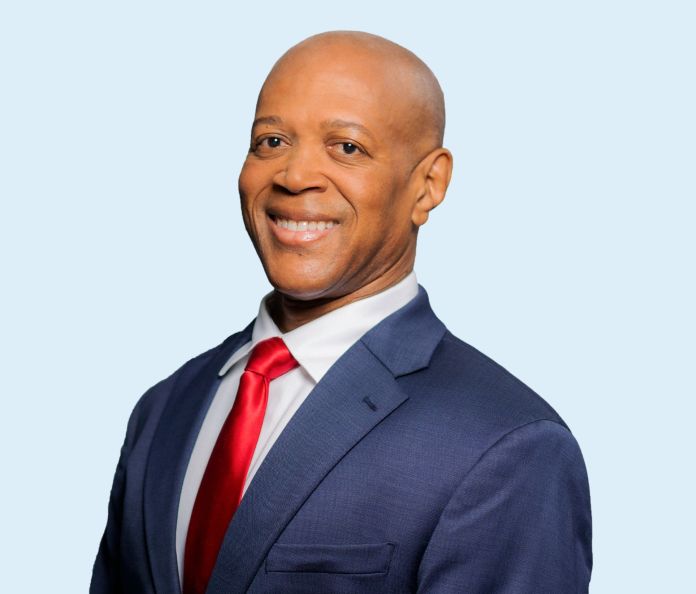By Central Bank of Barbados
BRIDGETOWN, Barbados – Since ascending to the post on March 1, 2023, Dr Kevin Greenidge has been both visible and vocal in the role. To mark the first anniversary of his six-year tenure, the former International Monetary Fund (IMF) senior economist and senior advisor to government sat down for a wide-ranging interview that touched on how he views his role as governor; the state of Barbados’ economy, and developments in the local financial sector.
How being governor differs from previous roles
During the interview, Greenidge revealed that while his previous positions with the IMF and the Government of Barbados also involved providing economic advice, he considers the role of Governor to be one that comes with more responsibility:
“I’m leading an organisation of almost 300 people, and so now I’m directly responsible for their wellbeing. And I’m still giving advice to government that impacts the rest of the country. We’re giving advice to banks and monitoring to improve the well-being of the entire [financial] ecosystem… You’re impacting more lives with every decision you make.”
When macroeconomic gains will be felt on the ground
A key role of the central bank governor is to report on the state of the economy, which has now rebounded from the COVID-19 slump. At the end of 2023, GDP was higher in both nominal and real terms than it was pre-pandemic, but, there is concern that the average Barbadian isn’t feeling the positive effects.
Governor Greenidge acknowledges:
“Economic growth takes a while to be felt at all levels. When an economy begins to grow, the first thing you will see is an improvement in corporates.” He says, however, that there are already indications that Barbadians are benefiting as well. “If you look around, in general, you’ll see evidence of that growth. You see people going out and dining out. You see that there’s increased demand: at every social event, people are there.”
Developments in the financial sector
The Governor also touched on a number of financial sector issues, including developments in the payments system, bank fees, and the perpetual issue of high liquidity. He revealed that banks currently have $3 billion in excess cash. “Banks don’t really need our deposits anymore… It’s a cost to them.”
Governor Greenidge reveals where he sees the central bank and the country as a whole in five years, and answers the question about what keeps him up at night.





